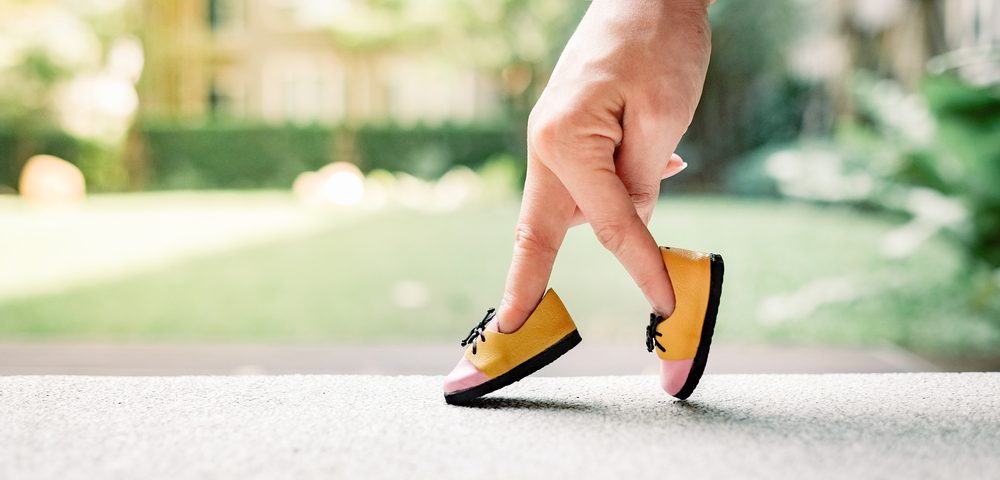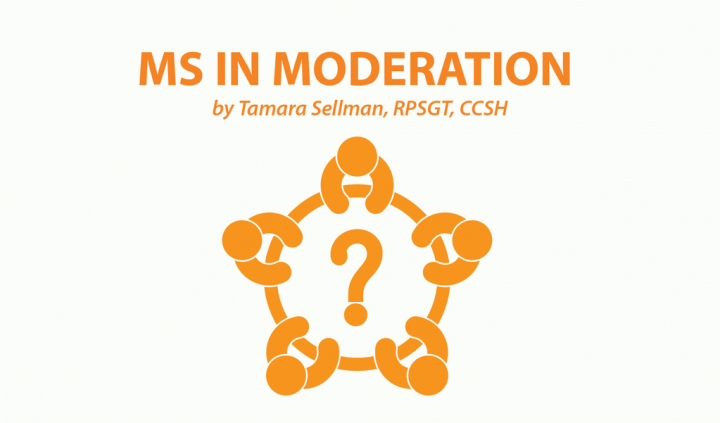Need to Know: What Is Gait?
Written by |

Editor’s note: “Need to Know” is a series inspired by common forum questions and comments from readers. Have a comment or question about MS? Visit our forum.
This week’s question is inspired by the forum topic “How Do You Manage MS-Related Balance Issues?” from April 12, 2018.
What is gait?
To put it simply, it’s your walking style. Healthy people may call it their swagger. People with compromised gait may also — tongue-in-cheek — reference their own swagger.
But what does walking style have to do with multiple sclerosis (MS) and why does it matter?
When gait loses its swagger
People with MS frequently encounter problems with their walking patterns. Gait issues are among the most common mobility problems experienced by people with MS, according to the National Multiple Sclerosis Society (NMSS).
Following are the reasons why we might “lose our swagger”:
- Numbness in the feet: It can be hard to know where your feet are stepping if you can’t even feel them.
- Heaviness in the legs and feet: It takes a lot of effort to lift leaden legs and move heavy feet when you’re feeling fatigued.
- Tight muscles and spasticity: Rigid, tight, and spasming muscles affect movement of the legs and feet and can interfere with a smooth walking pattern.
- Foot drop and other involuntary gait adjustments: Foot drop is when you drag your toes because of weakness in the foot and leg muscles. Other compensatory gait patterns involving weak muscles due to MS include hip hike, trunk lean, and vaulting. Some people with MS experience one-sided leg weakness.
- Balance issues: Sometimes your legs work just fine, but you can experience severe neurological-related balance problems which lead to the appearance of being “drunk” or uncoordinated while walking.
Why does managing one’s gait matter?
Problems with gait can lead to falls, which can cause injuries. Up to 70 percent of people with MS experience at least one fall over a period of two to six months, according to research highlighted at the 5th International Symposium on Gait and Balance in MS — Fall Detection and Prevention in 2015. Nearly one-third reported multiple falls and injuries.
Bad falls in MS aren’t caused by engaging in strenuous activities or athletic efforts. The NMSS reports that most falls occur close to home while carrying out daily tasks such as showering, walking outside among other people, and cooking.
How to manage risks of falls?
If you experience balance and coordination issues, talk to your neurologist about your options. Falls can be dangerous for people with MS. Even when your legs are strong, balance problems can lead to catastrophe.
If your legs and feet are affected by your MS disease activity, you have options for improving your gait.
The following approaches can help to prevent falls and may even correct gait in some of those with MS.
- Use of assistive devices: These include canes, braces, and walkers. Even if you only need them temporarily, they can be a godsend.
- Proper training in the use of these devices: Review your technique with your neurologist as improper use of canes and walkers can lead to pain and postural problems as well as falls.
- Fall-proof your home: Check your floors for hazards and add handrails, where practical.
- Fall-proof your clothes: Choose supportive footwear with good traction and avoid clothing that drapes to prevent tripping.
- Distribute your weight evenly when walking: Avoid carrying heavy bags and backpacks that can upset your balance and interfere with your stride.
- Stretching: Daily actions to loosen tight, spastic muscles can go a long way toward improving your gait.
- Strengthening: Lightweight training can help to maintain muscle tone and improve foot and muscle weakness.
- Muscle relaxants for spasticity: The most common medications used to treat muscular rigidity and spasms are baclofen and tizanidine.
Do you struggle with your balance when walking? Is your gait compromised? What have you done to improve your gait? Post your replies in the comments below or at the original “How Do You Manage MS-Related Balance Issues?” forum entry.
***
Note: Multiple Sclerosis News Today is strictly a news and information website about the disease. It does not provide medical advice, diagnosis, or treatment. This content is not intended to be a substitute for professional medical advice, diagnosis, or treatment. Always seek the advice of your physician or other qualified health provider with any questions you may have regarding a medical condition. Never disregard professional medical advice or delay in seeking it because of something you have read on this website. The opinions expressed in this column are not those of Multiple Sclerosis News Today or its parent company, Bionews Services, and are intended to spark discussion about issues pertaining to multiple sclerosis.




Averylle Stewart
Are you sure this article wasn't about me? You just described my MS perfectly! Someone that understands! Thank you!
Tamara Sellman
Aw thanks, Averylle <3 It probably helps to have MS myself! Tamara
Cyn Doyle
yes....I thought it was about me, too. thank you for saying so much in just a short article.
Sometimes , other people don't understand [ and how could they ?] and I feel like I am not ''trying hard enough'' or am not as bad as I think I am.
When I went to see my physiatrist a few years ago, ..he video-taped my walking and showed it to me. I said ''I didn't know my walking was that bad '' He told me that everyone who has seen their videos says the same thing .
Thank you for the great information.
Tamara Sellman
Happy to share this info, and thanks for sharing your experience, I love to hear stories about attentive healthcare professionals!
Tamara
Stan
I like to say that I can stagger and be falling down sober! No drinks needed. Small stuff to some but carpet, grass, snow,have all caught my toe. I now use a walker most of the time.
Tamara Sellman
It's a common refrain among folks with MS! Unfortunately, I even know people who are hassled in bars or in public because of their walk, as others interpret it as being high or drunk (including police officers). Glad you have the support of a walker, I am not there (yet), but do notice myself favoring a curvy path to the right when I'm tired. Throw in some funny speech issues and I'm equally sober-drunk! (PS I never drink.) --Tamara
Meshia Williams
Gait problems + overactive bladder = bad things. Thanks for the article.
Tamara Sellman
You're welcome, Meshia. You are sooooooo right. For me, it's IBS and numb/slow/leaden legs creating a similar path to "bad things." I hope you are managing yours okay! Be well,
Tamara
Kendall
Sometimes I feel like I'm not going to make it. My left side feels like I'm dragging a 25 pound sand bag at the hip and arm. Compiled with my achilles healing from a tear on the right side, I feel bogged down. I feel like a rusty bike chain. I guess I'm happy to be walking. I'm 37 now, I hope it will get better.
John Lupoli
Worked in the grocery business for 50 years so knees were pretty worn out .Noticed a loss of strength & muscle mass in left leg. Hence the MS Diagnosis. Had Total Knee replacement on my right leg. Currently rehabbing & doing well. My Neurologist said I have RRMS, & I've had lesions on my frontal lobe for quite some time. Still trying to accept this whole thing, & the limitations it puts on our lives. Can not use my snow blower, mainly cause of the knee surgery. I'm 67 so guess it is time to hire out for these outside chores. Guess as they say," Don't let it define you". Stay positive & be as active as you can.